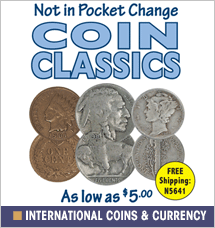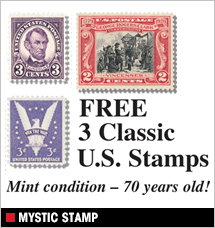Aid for Age
Words of Wisdom from the Past: My Interview with Dwight Eisenhower

It didn’t have the grandeur of the White House. It was a simple farmhouse in Gettysburg, Pennsylvania, where Dwight D. Eisenhower retired, and where I spent two hours with him nearly half a century ago.
Most of you readers were youngsters at the time. But you all know that he planned and supervised the invasion of North Africa and then the D-day invasion of France and Germany, which eventually led to the end of World War II. He was also Supreme Commander of NATO.
You also remember that he was our president for two terms, then became president of Columbia University.
Eisenhower made reducing Cold War tensions a main focus of his administration, and promoted atoms for peace and atomic energy for peaceful purposes. He expanded Social Security and initiated the Interstate Highway system.
But, back to my interview with Ike, 48 years ago. He was friendly and informal but still commanding in his presence, and forceful in expressing his thoughts. This is a much-condensed version of the interview.
I noted that in his then-new book The White House Years: Waging Peace, he expressed “the hope that your grandchildren will enjoy the freedoms that we have now and that these will not be lost when they are adults.”
Eisenhower: “Well, just as matter of history, we must take note of what happens to a nation when it becomes affluent after a long period of work and adventurous activity have brought it to a position of great promise and prosperity.”
“Thereafter, you begin to have a different atmosphere in a society. As long as the Roman nation made patriotism almost the basis of its whole philosophy, as long as each citizen took great pride…in carrying on the work of pushing for the greater strength and glory of Rome, they were a great nation.”
“But when they got rich and began to be more concerned with circuses than with their duties, and when they found they could collect taxes from wherever they wanted, pretty soon they got to the point of dissolution. Gibbon’s history was written of a tragedy rather than a great and constructive accomplishment.”
“Today the United States has gotten to the highest point in prosperity and general income, expressed in terms of the convenience and all the comforts that individuals like.”
“Go back to the time of Pericles, and study the history of his time and you will find that human nature is still the most rigid in its characteristics… Free government is still under test…”
My questions brought out his thinking on an array of issues.
“I think there ought to be more local pride. Our schools and our private local organizations…should be used to indoctrinate our people to talk about local pride and local responsibility.”
On money and investing: “We are becoming very dependent in our country on pensions. On savings, and government bonds. Now, we are going to find that when we put our money into bonds, we are going to get back in our old age only half of what we put in. You just can’t do that.”
Should we be reducing taxes? I asked.
“We seem to be in a sustained rise in economic productivity and general prosperity. Some are saying it is because of reducing taxes. If it were true, why don’t we reduce taxes to zero? So, if you reduce this argument to the absurd, you begin to say ‘there must be a proper level. Why did taxes have to go so high? The war, of course, is one great answer.’”
Do you worry about inflation? I asked.
“What we have to watch for in coming years is some very real inflation. Unless our consumer demand and our productivity to supply that demand grow at a continuous rate, we are bound to have inflation. To initiate a vast number of programs that make the expenses go up, outside of our defense costs, then we are asking for trouble.”
One of Eisenhower’s great achievements was the Interstate Highway system.
“One thing for which I guess I was personally responsible — the highway construction program — it took a long time to persuade Congress, but we finally got this great interstate system of roads. I felt strongly about the matter partly because I had seen the great autobahns of Germany. But we had to settle for 90 percent federal money and only 10 percent state funds. Finally, we got the money by tax on gasoline. Those highway systems are one of the reasons for our great increase in automobile sales.”
I still have a picture, taken after the interview. It shows me standing facing the outstanding hero and former president beside his desk. What surprises me still is that he and I were of the same height. It powerfully says physical size isn’t important.
Tait Trussell is an old guy and fourth-generation professional journalist who writes extensively about aging issues among a myriad of diverse topics.




























































